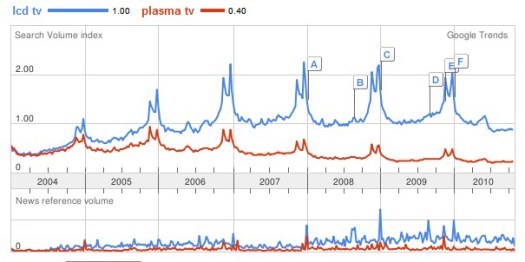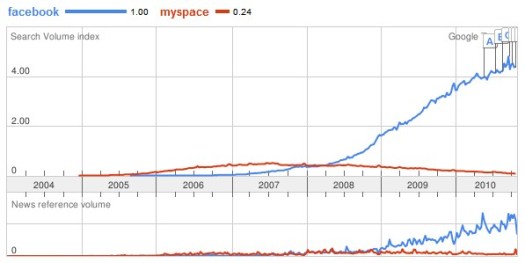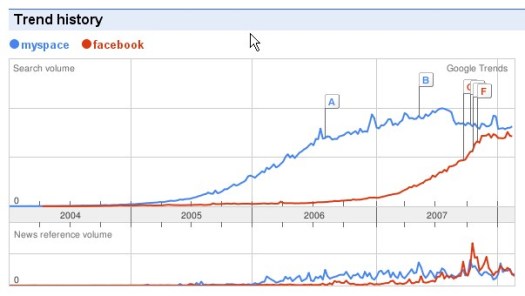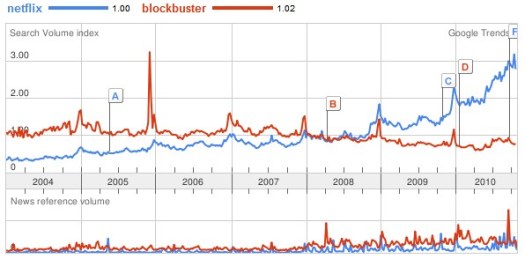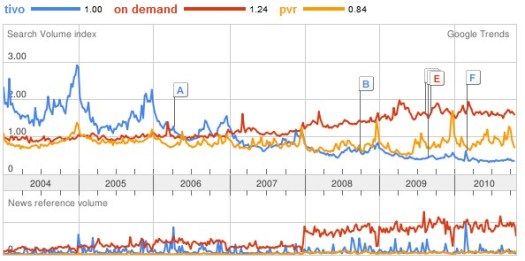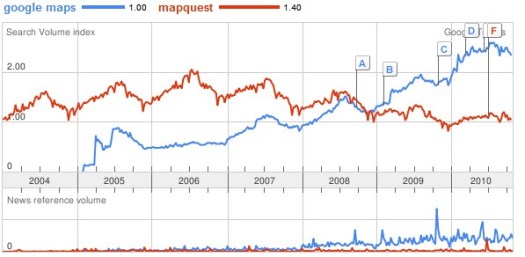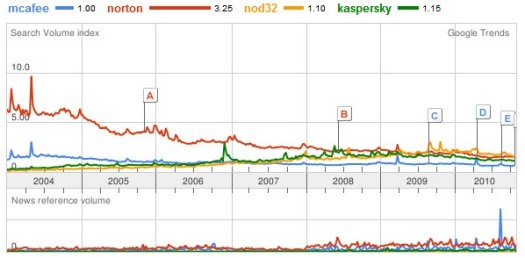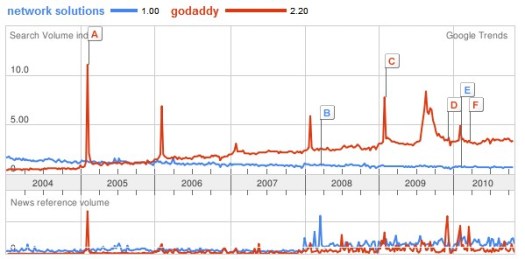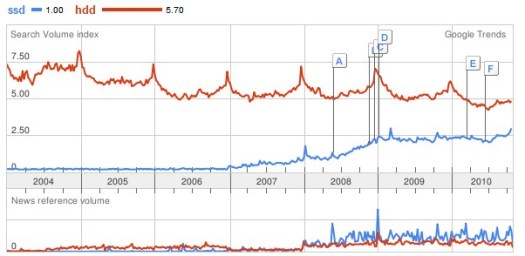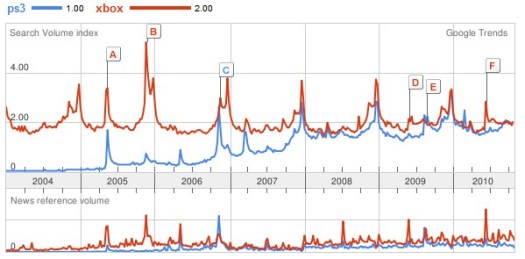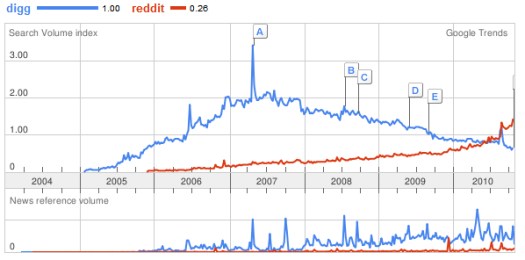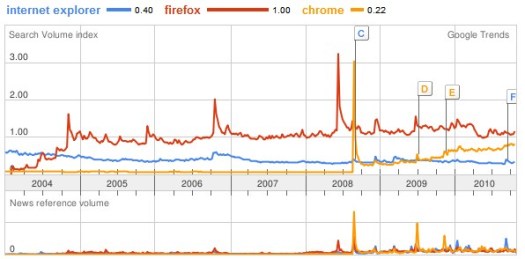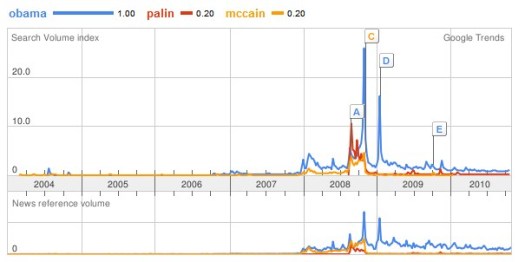Top 10 Tips to Write Effective Emails
I don’t know about you, but I get a good amount of emails every single day. We’re talking a minimum of about 50-100 emails a day that I absolutely have to read, generally more. This of course doesn’t include the emails that I can skim or just ignore. These are in the absolutely need to read, critical emails.
And as such, I’ve noticed over time that some emails are much much easier to read than other. There’s so much of a difference that some emails I cringe at the thought of having to read them whereas others I’m almost looking forward to reading them. We all make snap decisions on whether an email will be pleasant to read or not with just a single glance, before we even know what it’s about!
Which is why today I’m going to share with you the Top 10 Tips I’ve come up with that can improve any email. These tips will prevent your emails from being ignored, or being put on hold because the receiver is not looking forward to reading them. I’m going to give you some simple tips to improve your emailing.
1. Use sentences
I really hate to have to bring this up, but it must be said, and it must be said first and foremost. When you write an email, use sentences. The first letter of the first word of a new sentence should be uppercase. It’s important because it makes your email that much more readable. I’ve received too many emails where all the letters were lowercase. It might not seem like a big issue but it definitely makes reading any email much harder. Especially if you have longer paragraphs. Then it just becomes brutal!! If you’re guilty of this and you don’t believe me, try having someone send you a full page with no sentences. You’ll be surprised at how hard it is to read.
2. Break it up into paragraphs
You might not be writing a paper, but I can’t stress how much it helps if you break up your email into paragraphs. That is logical groups of sentences that deal with a specific theme or thought. Having a full page of text with no paragraphs is also almost impossible to read. You start to lose context. You lose focus of where you’re at. It makes it really hard. And good luck trying to respond to such an email in parts.
3. Re-read your emails
Please please please re-read your emails. Too many emails are quickly written and not even re-read once. It’s obvious when you get one of these. Nothing makes sense. The sentences don’t even make sense. It’s all over the place. Not all the time, but many times it’s hard to just understand what the other person is trying to say. Please be careful to re-read your emails if at all possible, especially if you’re asking for something. It can make a huge difference.
4. Take a minute to write a good subject title
Many times the decision on whether to read an email now or later, or if at all, is made by just reading the subject title. Now I’m not talking about writing headlines that attract people to your emails like spammy emails do. I’m talking about writing subjects that will make sense to the person receiving the email. For example, if your email is about a company meeting, then make sure to reference that in the subject. Basically make it obvious to the person receiving it what the email is about because it really helps. Not only that, but it also makes looking for emails later on that much easier. What, you mean the email you sent me about our decision to use Malbolge as our programming language, let me see if I can’t find it. There’s nothing here, I’ll have to do a full search, give me a few minutes to find it because there’s a few dozen emails that appeared in the search results. Ugh.
5. Keep it short if possible
Unless it’s a personal correspondence, you generally want to keep your emails as short and sweet as possible. It’s great that you can write amazing poetic and elegant verses, but when it comes to business please keep it as simple and as much to the point as possible.
6. Be careful of the tone
Unfortunately with email, it’s very easy to say something one way and have the other person take it in a completely different way. Tone is something that’s easy to do with a phone call but hard to convey by email. This is why you sometimes see emoticons (more for personal emails), so that you can make sure the person correctly interprets your tone. Whether or not you use emoticons, because in many situations they aren’t appropriate, be very careful what you write so that it cannot be interpreted in a wrong way.
7. Make it respond-able
This goes back a lot to tip #2, “Break it up into paragraphs”. Basically if you want someone to reply, try to break up your email into chunks, chunks that make it easier for the person to reply and respond to. For example avoid writing 10 questions in one paragraph, break each question into it’s own line, or something like that.
8. Avoid background images and pictures in your signature
They may look cute on your computer, but it’s much harder for other people to read. That and not all systems that read email are able to display them correctly. On top of this they sometimes make your email much harder to read. I’ve seen some background images that made reading the text virtually impossible until I copy & pasted it out into another application. If someone has to do this, odds are they won’t read it.
9. Correctly setup your from email address
A lot of people forget to setup their from email address, and this is unfortunate. The reason you want to set this up is to let people know who is sending the email. Sure it’s cool to see the email address, but sometimes it’s even better to have a name. I may not know that myCoolEmailAddress23423@landlordmax.com is your email address and may therefore ignore it, or assume it’s unimportant. Instead let me see your name so I don’t have to make the association between you and some random email address.
10. Avoid attachments
If at all possible, put the text in the email itself. As cool as it is to write a Word document, a PowerPoint presentation, a PDF, and so on, if at all possible please put the content directly in the email. The odds of someone reading your email quickly decrease if they have to open up attachments. It’s one more step that’s annoying, especially if there’s no reason for it. And there’s also the possibility of viruses because how can I trust your attachment is safe for my computer. As well, if I ever have to look up what we said, I can’t do a search through the file attachments. This means that the only way I can find your message is by opening the messages and attachments one by one. That’s brutal!!
Bonus Tip 1: Don’t assume your email will remain private. Yes, all emails are suppose to be confidential, but the unfortunate reality is that this isn’t always the case. Therefore be attentive and careful about what you write because you never know where the email will end up. In most cases it’s ok, but you never know.
Bonus Tip 2: Not all emails are urgent. I can’t stress this enough. I know of a few people that mark almost all of their emails as urgent. This is actually quite annoying. Not only that, but have you ever heard of the story of the boy who cried wolf too many times? That’s what will eventually happen.
Permalink to this article Discussions (5)
Are Shorter Headlines Always Better?
It’s generally assumed that shorter headlines are better. Not just a little bit better but significantly better. The reality is that it’s necessarily not true. Shorter headlines are indeed better, but just marginally better. The difference between a 3 word headline and a 13+ word headline is not even 10%!!
A study of 2500 ads done in 1939-1940 by Harold J. Rudolph through the Saturday Evening Post found that the content of the headline is the major element that determines the effectiveness of a headline, not it’s length as is generally assumed. The table below shows the difference in the number of people who read the headline based on the number of words in the headline:
.
| Number of Words in Headline | Percentage of People who Read the Headline |
|---|---|
| Up to 3 | 87.3% |
| 4-6 | 86.3% |
| 7-9 | 84% |
| 10-12 | 82.5% |
| 13+ | 77.9% |
Therefore what we should learn from this is that if you have to add extra words, do so as long as it makes your ad more effective. A shorter headline with poorly chosen words is not as good as a longer headline with well chosen words. After all the difference in effectiveness isn’t even a full 10%. It’s definitely not as much as we’re generally lead to believe.
Permalink to this article Discussions (2)
How Accurate Were My 2009 Google Trend Predictions?
For those of you who aren’t familiar with Google Trends, it is a free service by Google that lets you determine the trend of different keyword searches over time, and ultimately compare them against together. This is extremely powerful in that it can really help you predict the future, in many cases it’s so accurate that it can be scary! So today I’m going to take the time and revisit my predictions from June 8, 2009 (about a year and a half ago) when I wrote Can Google Trends Predict the Winner? In case you’re wondering, the answer is yes it can. It’s that accurate!
So let’s look at each prediction one by one to see what’s happened since:
LCD TV versus Plasma TV (obvious prediction)
In 2009 I predicted that plasma TV’s were on their way out. Clearly this trend is continuing today.
MySpace versus Facebook (scary good prediction)
This is one of my favorite predictions, partially because I predicted this as far back as 2007 when Facebook and MySpace were neck in neck, when there was no clear winner yet. When I initially wrote my ebook How to Generate Traffic For Your Website I used the example with data up to early 2008 (first edit). When I re-edited it in 2009, I kept the same graph (shown below) because it was even less clear who the winner was going to be. By 2009 it was starting to become pretty obvious. Of course today there’s absolutely no doubt.
Netflix versus BlockBuster (scary good prediction)
By mid-2009 you could see a downward trend for BlockBuster and an upward trend for Netflix. Based on that, I predicted that Netflix would win over BlockBuster. I used BlockBuster because it was the biggest movie rental company by a large margin.
It turns out that prediction was all too accurate. In September of this year (2010) BlockBuster filed for Chapter 11 Bankruptcy protection. And Netflix is showing no signs of slowing down, they’re actually showing some pretty solid growth as shown below:
In case you’re wondering, how could you have leveraged this information and made money from it. Well the answer is pretty easy. For one you could have avoided losing (er I mean investing) any money in BlockBuster stocks and bought Netflix stocks instead.
For example, if you invested $1000 in Netflix in June 2009, you would’ve paid about $40/share, acquiring 25 shares. Today those same 25 shares would be worth $168.15 each, giving you a total of $4,203.75. A handsome profit of $3,203.75!! You would have made 400% on your money!
If you had invested that $1000 in BlockBuster, at the going price of about $0.65 a share in June 2009, you would now have a total share value of $107.69. You would have lost of the tidy sum of $892.31! In other words you would’ve almost all of your money!
Of course this is a drastic example, for sure not all predictions are that drastic. But it sure does make me think, especially when almost all of my predictions using Google Trends turned out true!
Tivo versus PVR versus On-Demand (ok prediction)
Although harder to see because the changes aren’t as drastic, my predictions from a year and a half ago appear to have also come true here as well.
Tivo continues to be on the decline. In terms of investments, it doesn’t quite work out. It just happens that Tivo had an upswing in stock price in June 2009, going from $7 or $8 a share for a long time before to a high of about $11.50 for the month of June 2009, then falling to a consistent average of $10.50 for many months. After that it did go as high as $18.49 for a short burst, then back below the $8 range until just recently having jumped up back up to exactly $11.50 today! So had you invested in June 2009, you would have made or loss nothing, you’d be exactly where you started. Today, I would still advice against investing in Tivo stocks, unless you want to short the company that is.
For On-Demand, it appears to have stalled somewhat. It did grow from mid-2009, but in mid-2010 it seems to be stalling. If I were a cable network executive, I’d either be pulling back or pushing hard. Leaving things as they are probably means that On-Demand will slowly fade away. Right now it can go either way, but my suspicion is that we’ve seen the peak and it will start to decline because cable companies are notorious for their slow speed of execution.
For PVR, not much has changed. It still too static to predict. If anything there seems to be a small upwards trend, but it is very small. Nonetheless I’m still very much on the fence for PVR. It’s still too early to predict which way it will go, only that it will still be here for some time.
Google Maps versus Mapquest (good solid prediction)
In mid-2009 Google Maps had just passed Mapquest. It was also pretty apparent that Google Maps was growing whereas Mapquest was slowing down. Well today it’s clear that Google Maps has beat Mapquest. The only real question now is if Google Maps has peaked or if it’s just hitting a temporary peak.
Norton versus McAfee versus Nod32 versus Kaspersky (half accurate prediction)
I predicted that Norton and Mcafee would continue to lose marketshare and Nod32 and Kaspersky would continue to grow. Unfortunately the trend graph is very hard to read because Norton had such a strong lead in the past. However if you take out Norton from the graph, it’s a lot easier to see the differences.
That being said, it’s still evident that Norton and Mcafee are declining (hence the mostly accurate prediction). However what’s unfortunate is that Nod32 and Kaspersky seem to have peaked. I then looked at “antivirus” and it seems to also be on a decline as a whole, which is intriguing. Therefore I don’t know if this is related, but it would be interested to follow-up and see what’s going on. Is it the industry in general that’s on a decline? Is it the economy? Or are there other upcoming antivirus companies replacing them? I don’t know and I just don’t have the time to research it myself, but I would definitely be interested to know.
Network Solutions versus GoDaddy (good and easy prediction)
As predicted, the trend continues. Network Solutions continues to decline and GoDaddy continues to grow. I wish I could compare investments made in both of these companies but they aren’t publicly listed. In any case, I predict Network Solutions will continue to decline with time and GoDaddy climb.
SSD versus HDD (good and on track prediction)
As some of you know, I’m quite biased when it comes to SSD versus HDD. I’ve been an SSD convert since early 2008. I currently have an Intel X25-M Gen2 SSD drive in my laptop. I will never go back to HDD’s. The difference is just staggering! Once you go SSD you can never go back to HDD!
Anyways, based on the Google Trends in mid-2009 I predicted SSD’s would eventually overtake HDD’s and eventually become the standard. Not just because I’ve seen the difference firsthand, but also because of the Google Trends charts. Well it appears that this trend is definitely continuing. I predict it’s only a matter of time before we see SSD’s overtake HDD’s. And once that happens, it will stay that way forever. The only thing holding back SSD’s right now is pricing, there’s still too much of a premium that most non-techies are willing to absorb. But as the prices go down, the trend will only increase in speed.
New Predictions
PS3 versus XBox
Based on the above Google Trends, I believe the PS3 is going to become the dominant gaming console in the next 1-3 years, at least until a new “disruptor” console comes along (generally every 5 or so years). And in case you’re wondering, I tried a few variations of the keywords XBox, Xbox 360, Playstation 3, and so on, and basically kept the main two keywords used for searches on these two consoles.
Digg versus Reddit
Looks like Digg has lost it’s way and is going to just keep on losing. Whereas on the other end of the spectrum you have Reddit which seems to be growing even faster since Digg’s recent issues.
Internet Explorer versus Firefox versus Chrome
We’ve all heard news about IE (Internet Explorer) losing dramatic marketshare to Firefox. But how many of you have heard about the latest web browser from Google called Chrome? It’s first official public release was Dec 2008, less than 2 years ago. Although new, it seems to be growing by leaps and bounds while the other two browsers are either stagnant or losing marketshare.
So how do searches on Google actually transfer to marketshare? Quite well it turns out according to Engadget and Ars Technica. Their data is pretty consistent with what we find on Google Trends. IE is consistently losing marketshare, which is why Microsoft is pushing really hard to get IE9 out. This is their attempt at getting back some of their old glorry from the IE versus Netscape win. Firefox seems to be pretty much stable right now, neither losing or winning any real marketshare. And then there’s Google Chrome. According to StatsCounter, Chrome usage has tripled in the last year! Yes, that’s right, tripled!
So what does this all mean? Well unless there’s a significant improvement in either Firefox or IE, then my prediction is that Google Chrome will become a major player in the browser wars. I wouldn’t be surprised if it takes first or second place sometime in either 2011 or 2012.
Conclusion
Although I’ve just compared a few items, the potential is endless! And from what I’ve seen, the accuracy can be surprisingly good. So good in fact that Google has created Google Flu Trends.
Basically what they’ve learned is that the trends for searches about the flu mimic the actual real volumes of flu activity. The biggest advantage with Google Flu Trends is that it’s possible to get the data quicker than the CDC. Yes, that’s correct! The CDC takes about 1-2 weeks to compile the latest data whereas Google can publish it in real time! The idea is that if there is a major spike in flu searches, Google can warn the CDC 1-2 weeks before they even know about a pandemic!
But what about other diseases? I quickly searched for stomach flues and gastros and the data seems to indicate yes. That being said, I will admit I didn’t search very hard to confirm this, but I do suspect it would be very accurate. Scarily accurate!
My next big leap, which I haven’t taken or tested yet, is can Google Trends be used to predict elections? I highly suspect the answer is a resounding yes. I just took a snapshot of the Google Trends for the bigger candidates of the 2008 US presidential race and it clearly shows Obama leading his opponents in searches. Of course this is in retrospect, so it’s very easy to say after the fact. But what about the next election?
I can only imagine what else is possible. If you have any ideas, and especially if you find interesting trends and comparisons, please let me know. I look forward to seeing what you find!!
(good prediction)
Permalink to this article Discussions (2)
Top Entrepreneur Movies to Watch
In no particular order:
 |
Wall Street (1987)
There are numerous lessons to be learned from this movie. It’s probably THE most famous business. What’s more, it’s still amazing today, 20 plus years later! Some of my favorite quotes include: “It’s not a question of enough, pal. It’s a zero sum game, somebody wins, somebody loses. Money itself isn’t lost or made, it’s simply transferred from one perception to another”. “Life all comes down to a few moments. This is one of them”. The most valuable commodity I know of is information”. And probably the most quoted: “Greed is good.” Although the above quotes are mainly about greed, which is the central theme of this movie, there are many many many lessons to learn. There’s ambition, taking chances, the power of information, and so on. An interesting tidbit, one of the pivotal scenes of this movie is quoted as part of another movie in this list (The Boiler Room). |
 |
Startup.com (2001) The story of a group of friends from high school who decide to start a dot com business at the height of the dot com boom (aka mania). It starts off as you would expect, with lots of excitement and energy. But as the business grows, VC money becomes more and more important since there is no real revenues. To avoid spoiling the movie for those that haven’t seen it, let’s just say a lot of issues have to be dealt with. This is a great movie for people thinking of starting a business with a group of friends, of exactly what can happen and what you should discuss beforehand. Plus it show the importance why a business should be run to be profitable. The whole movie is really about getting the next round of VC (Venture Capital), it’s not about how to grow the business to earn more money. I don’t even remember this being discussed once in the whole movie! |
 |
The Secret of My Succe$sThe Secret of My Succe$s (1987)
The Story of an ambitious young man who wants to conquer corporate America. Although he doesn’t climb through the proper channels and there’s plenty of 80’s style “you can do anything”, there’s lots of good lessons. For example, in the movie he was able to climb just by filing the proper paperwork! Some great lessons include the power of charisma, the power of information, the value of social networks, and so on. Although this may be a more arguable point, that sometimes it takes a bit more than hard work to get ahead, you also need to create your own luck. I would of course not recommend creating luck the way Brantley (played by Michael J. Fox) did in the movie, but the idea is that he took his destiny into his own hands. |
 |
Jerry Maguire (1996)
Ignoring the two big quotes from this movie: “You had me at hello” and “Show me the money”, this movie is what entrepreneurship is all about. Jerry is a successful agent for his clients at a large firm when he comes to the realization that things aren’t working for him. He writes a mission statement of what the company should be, where agents should have less clients so that they can foster better relationships. Needless to say, this doesn’t go well. So he sets off on his own to start his own company with his own clients which will be run according to his mission statement. He will focus his business on managing less clients but taking more time and effort with each client. On building relationships with them. And like any business, the start can be rough. It never quite goes as planned (it honestly rarely does – double to triple your estimates, and not your best estimates), and in this movie he almost loses everything. But he is able to pull through, and he does succeed. |
 |
Hitch (2005)
You might be wondering why this movie is in the list, it’s because it’s not just about romance. Business is about understanding your customer’s problems and finding solutions to those problems. In this case Hitch is a successful consultant not only because he’s good at what he does, but also because he’s figured out what his customers want, even when they don’t really know it. What’s also interesting is this is one of the few movies you see someone be selective with their customers, and even fire their customers. Hitch interviews all his clients to make sure their intentions are good, and only then will he work with them. If he finds out later that they aren’t, he immediately fires them. All around a good movie showcasing the importance of understanding what your customers problems are and finding solutions for them. As an added bonus, he always demonstrates the power of word of mouth marketing! His business is not exactly something you want to advertise on a billboard, so it has to be through word of mouth. And he is successful. |
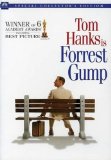 |
Forrest Gump (1994)
Shrimp anyone? Even Lieutenant Dan didn’t believe Forrest could start a shrimping business. The main lesson here is that it doesn’t take brilliance to start a business, anyone can. Sure Forrest had a little luck because of a storm that wiped out his competition, but had he not tried he never would have gotten anywhere. And he definitely wouldn’t have been on the cover of Fortune Magazine as depicted in the movie. Starting and running a business takes more than skill. It takes a lot of hardwork. But most important, you have to actually start the company! As I’ve said before, Ideas are a Dime a Dozen. Not to downplay them, but the concept is that coming up with an idea is not hardest part of a business, executing the idea is. And in the movie, we see Forrest does just that! |
 |
Baby Boom (1987)
A high powered executive (known as the Tiger Lady) inherits a baby and suddenly finds her life turned upside down. She eventually makes the decision to move away to the country to raise the baby. Once there, she comes across the idea of creating high quality baby foods for a niche market. Being the 80’s and all, there’s the classic montage of her building her business into a very successful business, so successful that her previous company offers to buy her out. The biggest lessons learned from this movie are about the importance of niche markets. How it’s important to focus on thing and be the best at that thing. Had she created another brand of baby food, it would’ve just been another baby food company, and she would’ve had no chance. Instead she found a segment of the market she wanted, then she spend some time analyzing that market for it’s potential (yes, you actually see her analyze her market segment/niche in the movie). It’s important to have a USP (Unique Selling Proposition), and J.C. (the high powered executive) definitely figures hers out. |
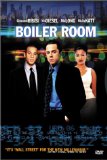 |
Boiler Room (2000)
You would think this is the movie to show you what not to learn about business because it’s all about scamming your customers. True, I agree, but there are still several things to learn. My favorite quote: “And there is no such thing as a no sale call. A sale is made on every call you make. Either you sell the client some stock or he sells you a reason he can’t. Either way a sale is made, the only question is who is gonna close? You or him? Now be relentless, that’s it, I’m done.” That’s right, this movie is mainly about high pressure sales tactics. Although I personally disagree with this kind of sales tactic, but it’s still important to understand because it will eventually be used on you. They also discuss about market segmentation, but not exactly in those terms. They discuss how some customers are more profitable then others, and how to identify them. How to determine which are the fat whales. There are some other great lessons in this book, especially the importance of questioning a too good to be true deal. You’ll definitely get learn something from this movie. |
| Pirates of Silicon Valley (1999)
Who doesn’t know Bill Gates or Steve Jobs? What better movie can there be on business than the story of how those two started their companies. Although it’s not exactly known for it’s accuracy, it’s still an amazing movie with a lot to learn from. These are two different people that both succeeded wildly yet took very different paths to success. What’s also very interesting is the impact of some of the decisions they made early on. There’s a saying that basically goes along the lines of, you can be good in business and succeed, but you need to be both good and be lucky to succeed wildly. They were both good, and fortunately for both for them, they also both made some very good decisions early on. |
|
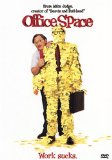 |
Office Space (1999)
How can this movie not be on the list. It’s a classic! Of course it’s not so much about learning how to run a business as it is about how NOT to run a business! But still this movie is just too hilarious to leave out. Examples of how not to run your business include TPS reports. Or having a dozen managers ask you about your TPS report. Can you imagine having to deal with that many managers? One of my favorite quotes is: “Yeah, I just stare at my desk; but it looks like I’m working. I do that for probably another hour after lunch, too. I’d say in a given week I probably only do about fifteen minutes of real, actual, work.”. How can you expect any company to excel and lead if you’re people are that de-motivated. |
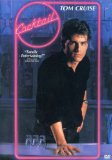 |
Cocktail (1988)
In this movie Brian (played by Tom Cruise) is a very ambitious young man excited to get his start in the business world. He quickly learns that none of the big companies are interested in hiring him without a degree, so he unrolls at the local city college and starts a part time job where he meets his counterpart for the movie. Together they go through quite an adventure. They decide they’re going to open their own bar called Cocktails and Dreams. But to do this, they need money, and this is where they start to diverge on their paths. This also where the biggest lessons can be learned. Having a business partner is not something to do on a whim. It’s very difficult, you need to have the same goals, you need to be able to work together through the tougher times, you basically need to work better together than an old married couple. Above that, and the usual business lessons, another interesting aspect of this movie is that not all money to start your company is equal. That is to say, just because you can get money, it doesn’t mean you should. It may or may not be worth the costs. So be careful when you take money for your business, make sure it’s worth the cost for you, not just personally, but also that you’re not giving away too much for it. |
 |
Rudy (1993)
Rudy is here because it’s so inspirational. Rudy is a movie based on the true story of a “5 foot nothin’, 100 and nothin’ with barely a speck of athletic ability’ man who achieved his dream of playing in a football game for Notre Dame. No one believed he could, not even his family or friends, no one. However through sheer will and determination Rudy was admitted to Notre Dame, got on the football team, and got to play one game. That’s amazing considering he had everything going against him! He worked hard, he persevered where most people would’ve quit. He worked so hard that when the coach said he wasn’t going to be able to play him on his last possible game, the football team revolted and refused to play unless he got dressed. Not only that, they got him on the field. And best of all, as far as I understand Rudy was the only person ever to be carried off the field on the shoulder’s of the other players. That’s how much they respected his dogged perseverance! |
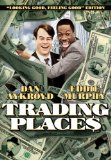 |
Trading Places (1983)
In this movie two investors/businessmen decide to make a $1 bet to see if they can turn a successful person into a homeless criminal and homeless criminal into a succesful business person. It has all the charm of an 80’s comedy. But above that, the two main characters invest and work the commodities market, along the way exposing mis-perceptions about the American Dream. And as a benefit, you’ll actually get to learn about how the commodities market work. And if you’re a bit confused by how the end goes, the following is a good explanation. |
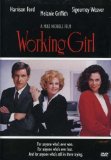 |
Working Girl (1988)
Ignoring the massive 80’s Big Hair, this movie is the story of Tess’s climb up the corporate ladder during the big Merger & Acquisition fad of the 80’s. Above the normal business lessons, this movie really shows the importance of social skills in business. Not only do you need to be smart, but you need to be able to work with people. You need to understand other people’s needs. You need to be able to communicate with other people. And most importantly, it really helps if other people believe in you. |
 |
Aviator (2004)
This is the story of Howard Hughes, from his beginnings all the way to the end. Even though Howard had some personal issues, but he was still an amazing businessman. How many people are willing to make the types of bets he did on succeeding? Betting the whole company many times over? There’s no doubt he was a very smart person, but he also had a lot of ambition and was willing to put his money where his mouth was. And not just on a small scale, but on a massive scale. What I found most interesting is that all the while he was creating and growing his company he was also battling some very big inner demons. He was able to succeed where most people would’ve crumbled, and he built a largely successful company above that. |
 |
Newsies (1992)
Business is not all about making smart decisions and executing on them, it’s also very much about the people behind the business. Without people there is no business. And this movie is in this list because it shows the importance of people. Not so much about getting the right people, that’s another lesson, but in treating your people right. In the movie, the owner of the newspaper company basically decides to decrease the pay of the newsies, which they don’t appreciate. This leads to a strike. Do remember of course that this movie takes place many years ago, when child labour was common and striking wasn’t unionized as it today. In any case, the lesson here is to remember to treat your employees well. This not only includes paying them what they deserve, but also treating them the way you’d like to be treated. It will make a difference in the long term, as Hearst (the owner of the newspaper company) learned the hard way. |
 |
Click (2006)
As important as your business is to you as an entrepreneur, you also have to realize that there are other things that may be even more important. In this movie, Michael (played by Adam Sandler) learns the hard way that climbing the corporate ladder isn’t the most important thing in his life. His family is the most important thing. When starting, and even when running a largely successful company, too many entrepreneurs focus solely on their companies forgetting almost everything else, even their own basic health! And in some cases, they sometimes wear this as a badge of honor. Yes your business is important, but is it the most important thing in the world? You should always ask yourself what the most important thing in the world would be if you had a heart attack today? |
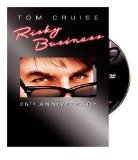 |
Risky Business (1983)
First there’s the obvious standard business lessons. You need a product that people want. You need to market it. You need to … But what’s more interesting is the underlying theme of this movie, which is how greed can corrupt people. Joel starts off innocently enough, but by the end of the movie his business venture isn’t exactly what you’d call mainstream. Mainstream or not though, all businesses obey the same core principles. As he describes at the end, his business is “Dream Fulfillment”. Find what a customer needs and fill that need. |
 |
Tucker: The Mad and his Dream (1988)
To quote the tagline: “When they tried to buy him, he refused. When they tried to bully him, he resisted. When they tried to break him, he became an American legend. The true story of Preston Tucker.” If his story doesn’t inspire you to build your company, I don’t know what will. What’s great about this movie is that it shows that sometimes you need more than sheer will, you also need a bit of salesmanship to go along with it. You need to to sell people on your idea, and more importantly on you! |
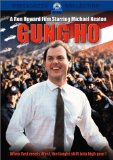 |
Gung Ho (1986)
Although dated, this film shows that business isn’t just about ideas and execution, it’s also a lot about culture. And although this movie is about the 80’s business Japanese business culture clashing with the 80’s American business culture, it’s about a lot more than that. Mergers and acquisitions aren’t always as rosy as they appear on paper. Just because two businesses can appear to have “synergy”, it doesn’t mean they will work well together. But the biggest lesson to take away is that all business have cultures that get established within them. These cultures can be good or they can be bad for the business. It’s therefore very important to cultivate cultures that will benefit the company, especially because it’s extremely hard to change them later. |
 |
Tommy Boy (1995)
“Holy Schnike”, Tommy Boy is on this list? Yes it is. Why? To quote Ray Zalinsky (played by Dan Aykroyd): “Truth is, I make car parts for the American working man because I’m a hell of a salesman and he doesn’t know any better.” In other words, a great product doesn’t make a great business. It sure helps, but it doesn’t guarantee you’ll succeed. Betamax was better than VHS. The Mac was better than Windows in the 90’s. There’s countless examples of products that were superior but lost out. To succeed at business you need to be able to sell and market yourself. |
 |
You’ve Got Mail (1998)
Although the central theme of this movie is the love story between Joe Fox and Kathleen Kelly (played by Tom Hanks and Meg Ryan), it’s also about a small company having a big competitor move into it’s market. It’s generally better if you can be the aggressor, but if not, you need to be prepared and learn how to differentiate yourself. In this movie Kathleen’s store is very different from Fox Books, it’s personable, it’s memberable, and so on. But it’s still not enough to compete with discount prices on commodity items (the same book can be purchased cheaper down the street). She wasn’t able to learn how to differentiate herself enough before it was too late. Therefore the lesson here is don’t try to compete head on with a big company on their terms, find another way to compete with them on your terms, one which you can hands down beat them. And go from there. |
 |
Family Man (2000)
With anything else, you need to have balance. And to reach the very top of success requires a lot of sacrificing, which Jack (played by Nicholas Cage) has done in this movie. But is it worth it? Is all the money worth it? Maybe, maybe not. Assuming you don’t want to be the very best of the best, it’s important to realize that starting a business does require some sacrifices. If you want to start a business at night and on the weekends, then that’s coming out of your free time. Also expect it to take a long time, there’s no way you can do it in just a few short months. If you want to go even bigger than that and quit your job, then expect to be working more and harder than your full time job to get your company started. Success does require a great deal of effort, it isn’t easy. Otherwise everyone would be doing it. |
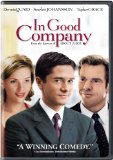 |
In Good Company (2004)
The most obvious business lessons to take from this movie is that there are multiple ways to successfully run a company. And there are the multiple approaches to building up your client base. In the movie Dan does it through social networking while Carter does it through cross-promoting, etc. Both are very successful in their own ways. Another lesson I personally cherished is that just because there’s a new way to do things, it doesn’t mean it’s always the best or right way. In many cases it is, but not always. How many of you remember the main business strategy of the dot com era? The idea of getting as many eye balls on your company’s website as possible, no matter what the cost. Dominate the market segment and then figure out how to be profitable. Always, always, listen and understand why it was done the way it was done before you jump into a new way of doing things. |
Honorable Mentions
The following are more great business related movies that you can benefit from watching, movies that I could have made fit in this list but would have made the list too long to read. They include:
- Click (2006)
- Clerks (1994)
- Mr Mom (1983)
- For Love or Money (1993)
- Greedy (1994)
- Fun With Dick and Jane (2005)
More Mentions
The following are related movies that are suppose to be really good but that I just haven’t yet seen:
- The Triumphs of the Nerds (1996)
- Glengarry Glen Ross (1992)
- E-Dreams (2001)
- Barbarians at the Gate (1993)
- Rogue Trader (1999)
- Code Rush (2000)
- Big Night (1996)
- The Corporation (2003)
- Capitalism: A Love Story (2009)
If I missed any please add them below in the comments.
Permalink to this article Discussions (2)
The Power of Scarcity!

The other day on my way home I came across this sign for a new gym. Only 500 memberships are available! It must be an exclusive gym right? Only 500 memberships? How many gyms do you know that limit their memberships? I better go get mine now while I still can!
Or should I? How many memberships is 500 for a gym? Is it a lot? Is it very few? Who knows, and to be honest, it doesn’t really matter. The key metric to how busy a gym is going to be is how many active members they have. If it’s not already common knowledge, the reason most gyms sell yearly memberships is that a large number of people won’t keep going past a few weeks to a few months. Even with the best of intentions. This is why they oversell memberships, and why gyms are generally more packed around News Years. How many memberships do you think are unfilled New Year’s Resolutions?
This however is the first time I’ve seen a gym display an actual real limit to the number of memberships they will offer. At all other gyms I’ve seen they’ll just take your money and enroll you no matter how many members they already have. I don’t ever remember seeing a gym limit their membership. But is 500 a high or low number? If they’ve never had more than 300 memberships, then 500 is more than they’ve ever had so it could almost be considered an unlimited number of memberships. But our perceptions that there is a limit makes us value each membership much more than they’re really worth!
I will therefore bet that because they’ve put a limit, whether or not it’s real or artificially so high that it’s in essence unlimited, that they will get a LOT more sales than if they had the very same sign with just the two words “only 500” removed!
Scarcity can be an effective marketing tactic, and this is a perfect example.
Permalink to this article Discussions (0)
Why Ford and GM are Going Bankrupt

Sure there’s the obvious issues like the fact that they have to spend more per car made. Sure there’s the issues with the unions and high salaries. Sure there’s the issues with the lower quality of their cars. Sure there’s the mismanagement issues. Sure there’s the issue that they’re focusing on government bailouts rather than solving their business issues. There’s a lot wrong, no doubt about it. But I believe it’s even more fundamental than that.
Let me ask you a few questions:
- What’s the family sedan from Honda?
- What’s the family sedan for Toyota?
- What’s the family sedan for Ford?
- What’s the family sedan for GM?
I bet you were immediately able to answer the first two questions (Honda Accord and Toyota Camry). I’ll also wager that you weren’t really able to answer the last two. What is the family sedan for Ford and GM? Why is that such a hard question to answer when that’s the most common car people buy?
It’s because they have no focus. They’re all over the place. To succeed you need to be about something, something that people can care about and follow your lead. It doesn’t matter how good your idea is or how good your execution is, without a goal and focus it’s all for nothing. So let’s hope they can figure it out before it’s too late.
Permalink to this article Discussions (4)
How to Leave a Voicemail That Will Get Called Back

As part of opening up the technical support phone lines for LandlordMax a couple of months ago, we’ve chosen to let customers leave us a voicemail rather than waiting on hold on the phone until someone becomes available. I believe this is the best solution for us, and we call back pretty quickly.
That being said, we get all kinds of voicemail messages. Some are great and some are not so great. Unfortunately sometimes the messages are just too hard to decipher and we can’t call back. So today I’m going to share with you the keys to leaving a great voicemail. And this applies to both personal and business voicemails. In no particular order they are (other than the first three):
Introduce Yourself Clearly
First and foremost start your voicemail by stating your name and phone number before you start leaving your message. This really helps give context to the message. Although you may know who you are, don’t assume the other person knows who you are right away. Not only that, but if you start talking about a prior history and the person taking the message doesn’t know who you are or what history you’re talking about, then they’ll have to re-listen to the voicemail at least twice (maybe more) before fully understanding it.
Imagine that you’re the receptionist at a doctor’s office and you get a voicemail such as: “Hi. After all I won’t be able to make the appointment for tomorrow at 3pm that you scheduled earlier for me”. If you heard just that odds are pretty high you might not be able to put two and two together and figure out who the caller was. Not only that, but if there’s more than one person handling the voicemails, then the person listening to the message might be the other receptionist who has no idea of the history. Adding “Oh and my name is ….” is very helpful, but it would be even better if you could put it first. Without looking back, can you remember what time the appointment was at? Probably not, you’re too busy just trying to process the message that you have to go back and re-listen to it.
Another good reason to state your name and phone number first is that generally when you transcribe voicemails to paper you write the contact information first. It’s easier to sort and take notes if you have several voicemails to call back. This is true for both personal and business voicemails.
Speak Slowly And Repeat Your Name and Phone Number
When you leave a voicemail, say your name and phone number slowly!! Remember that although you know your name and phone number by heart, the other person doesn’t. If you rip it out at mach 10, it’s very hard for the person taking the message to decipher it, never mind write it down. We’ve all heard voicemails where the person says the number so fast we have to hear over and over and over and over again just to get it down on paper. Avoid this at all costs!
If you have an odder name like mine (Stephane Grenier), take your time to articulate yourself and say it clearly. If you quickly muffle through your name, especially in a low voice, the other person has very little chance of getting it right. This is especially true if you’re offended when people incorrectly say your name. The good news is that you don’t have to spell it out, you just need to pronounce it clearly.
Raise the Volume of Your Voice
Speak louder than usual. Some connections are terrible. Maybe your phone has a lower quality microphone. Maybe the other persons phone is of lower quality. Maybe the person taking the message is in a louder environment. Speak up. Don’t be shy. It really helps. On several occasions we haven’t been able to return calls because we just can’t hear the person. They speak so low or softly that we can barely make out anything. Combine that with someone who says their phone number really fast, and there’s no way you can decipher the voicemail.
Don’t Assume Caller ID
Just because caller ID is everywhere, don’t assume you don’t need to leave your phone number. The number you call from can be blocked. The person transcribing the voicemail might not have access to the caller ID information. And in many cases the phone number displayed through the caller ID is just wrong or inaccurate. This is especially true if you call from a business and all calls just display the main phone number for the business.
Don’t Assume Previous Knowledge
Having already mentioned this, don’t assume the person taking the message has any history of your previous conversation. Especially in a business environment. Even if it’s a direct line to the same person, they’re probably dealing with multiple people on a daily basis. It’s not personal, it’s just the way it is. We humans have limited memory capabilities, so let’s help each other out. By giving a context, you’re also helping yourself.
Don’t Assume I Know You Just By the Sound of Your Voice
Generally you can get away with this for personal voicemails, especially with close relatives and friends. but definitely don’t assume this in a business environment. And even with friends and family, don’t assume it. Maybe when you left the voicemail there was a lot of background, you had a cold, my phone isn’t very good, etc. Remember, assuming makes an a– out of u and me.
Leave a Phone Number That Can Be Called Back
If you want someone to call you back, make sure you leave them a number they can call you back at. Just today I got a voicemail from someone asking me to call them back. When I tried, it said: “This person is no longer accepting any calls”. I can’t call them back. Similarly if you call a business, leave a number where you can be reached during the business day. And vice versa for a personal voicemail to a friend to call you back at night.
Avoid Background Noise
As mentioned before, if at all possible, when you leave a voicemail try to keep the background noise to a minimum. You never know the sound quality that will come out the other end, so why make it harder for the person taking the voicemail.
Always Leave Your Phone Number
This one is much more true for business than personal voicemails. Just because we’ve talked on the phone several times before, it doesn’t mean that I have your phone number readily available. Just imagine you’re a banker and someone left you a voicemail to call back about the interest on their mortgage but didn’t leave their phone number because you’ve had several back and forth calls. Now for some weird reason you can’t find their phone number in your notebook (it’s there but you can’t find it), what do you do? You can then look it up on their mortgage application form, which hopefully it’s there. If not you can always look them up in the phone book. You have so much to do, maybe you’ll just call them back later this afternoon since you have to digg for it. As you can see, as the effort to find your phone number climbs the odds of getting a quick call back drop. And who knows, if you’re very unlucky, they may never be able to call you back! By leaving your phone number you can make returning your call that much easier. And we all know the easier it is to do something, the more likely it’s to happen.
Conclusion
Obviously there are other things you can do to improve your voicemails, but just these will make an incredible difference. If I had to keep it down to a sentence, I would say: “Always say your name and phone number clearly, slowly, and loudly”. At the very least, you’ll get a call back!
Permalink to this article Discussions (0)
8 Types of Headlines that Compel Your Readers to Action

Note: This post is mainly an exert from my ebook How to Generate Traffic for Your Website:
A headline has 5-7 seconds to get the attention of a reader. Not only that, but statistics show that only 2 out of 10 readers will read past your headline. That means if you’re going to hook your reader, you need to do it right away.
To give you a more concrete example of just how powerful a headline can be, John Wesley submitted an article to several social networking sites, including Digg, Reddit, StumbleUpon, etc. The headline read “The Two Types of Cognition”. With this headline the article generated about 100 visitors. Nothing spectacular. However a couple days later, and after some work rewriting his headline, John resubmitted it with a new headline. With the new headline it got about 5000 visitors. A very significant difference, 50 times more visitors. What was the difference? Only the headline. The article was exactly the same. The headline went from “The Two Types of Cognition” to “Learn to Understand Your Own Intelligence“. You can find the details of his case study here.
Headlines can and do have a significant impact. It might only be one line, but it can easily make or break your articles success.
In addition to grabbing the person’s attention, the headline must offer some value to the reader in exchange for them taking the time to read your content (article, press release, etc.). According to the legendary copywriter Robert Bly, there are eight categories of headlines that compel readers to take action and read your article. They are:
- Direct Headline: These are straight forward headlines that state exactly what they want, they make no attempt whatsoever to be clever. An example is “LandlordMax – 30% off today only”
- Indirect Headline: These headlines are subtle, what could be considered as link bait. They usually try to generate curiosity by the reader, or offer a double meaning in their headlines. In others words the classic link bait approach.
- News Headline: This is a direct news announcement. For example “LandlordMax releases version 6.05”.
- How to Headline: This is exactly as you would expect, it’s a headline that offers you an article on how to do something. For example how to fix a broken faucet.
- Question Headline: This category of headlines ask a question that the reader can relate to, that they can empathize with, something they would like answered. A classic example is “Who else wants to make a million dollars in the stock market?”
- Command Headline: This headline states what the reader of the article needs to do. For this headline to work the first word needs to be a strong and commanding word. For example “Buy this EBook now!”
- Reason Why Headline: This is basically a list of why something is good or bad. For example “3 ways to be more productive with your time”.
- Testimonial Headline: In this case the headline is a customer testimonial. This is done to offer outside proof, otherwise known as social validation. You’re validating through social proof that your article (or product) is great and worth the readers time. After all it’s not just you who says so, someone else is saying it too.
For further reading on headlines I recommend any book by Robert Bly. As well the book Advertising Headlines that Make You Rich contains a list of good and usable headlines (with a short explanation on how to use each headline). And don’t forget to check out Brian Clark’s blog CopyBlogger.com, he’s got a lot of amazing articles on how to write headlines. Good luck and good writing!
Permalink to this article Discussions (3)
Blog Blazers at Drake University

Since I published Blog Blazers a few months ago, the reviews have been great! A while back I sent Mike Sansone a copy of the book to review for his blog ConverStations and he liked it so much that he’s decided to use it for his workshop at Drake University! How great is it to see your book used in a University workshop? Especially as it’s only been a few months since it’s been available!
To quote Mike’s review:
“There are a lot of blogging books out there. Many are good, but I’ve found Blog Blazers to be a gold mine of instruction. That’s why I’m recommending it to my students in one-on-one and classroom settings. Stephane Grenier quizzed 40 fantastic blog authors on how to create a high-profile, high-traffic, and high-profit blog.
…
If you’re coming to the Drake University workshop on Saturday, we’ll be talking a lot about this book.”
Thank you Mike, it’s awesome to hear you’ve decided to use Blog Blazers!
Permalink to this article Discussions (2)
The Power of Google Alerts

Have you ever wanted to know what’s being published online about you this week, today, or maybe even right now? Well you don’t have to worry anymore. And no, you don’t have to continually keep surfing all the nooks and crannies of the web to find out. It’s much simpler than that, all you need to do is setup a Google Alerts.
So what are Google Alerts? According to Google itself: “Google Alerts are email updates of the latest relevant Google results (web, news, etc.) based on your choice of query or topic.”
From my perspective, it’s a way for me to keep track about what’s going in regards to myself on the internet. I can find out when new posts about me (Stephane Grenier), my blog (FollowSteph.com), my book (Blog Blazers), or even my company (LandlordMax) appear. It’s great to be able to keep up with everything that’s being posted about you!
But it’s more than that, and herein lies the power of Google Alerts. Not only are you able to find out when things are being said about you so that you can know, and possibly react, but you can also get Google Alerts about any keyword!! That’s a huge benefit!
For example, if you’re website is about “Dog grooming”, wouldn’t it be awesome to get all the latest webpages Google indexes into it’s search results for “Dog grooming”? If it’s a blog post maybe you can contact the author, add to the discussion by leaving a comment, and so on. If it’s an existing discussion on a forum, maybe you can join in and participate. Just be careful not to spam whatever page you get alerted to, it will eventually come back to you. The key is that Google Alerts can alert you about new discussions and articles related to your keyword/niche, which in turns allows you to join those which interest you. How great is that?
And here’s an extra little trick. You can also setup Google Alert’s for your competitor’s names. The reason this is interesting is that it allows you to have an idea of what they’re up to. And you might find some interesting tidbits of information here and there that you can learn from. But overall, it’s a great way to keep track of what your market niche is doing.
So if you haven’t already setup Google Alerts, I strongly suggest you do. They’re great and extremely easy to setup. Even better it’s free! You’ll definitely get your time’s worth. And if you’ve already setup Google Alerts and you’re using them, please feel free to share your story of how you’ve benefited from them.
Permalink to this article Discussions (6)
| NEXT PAGE » |



